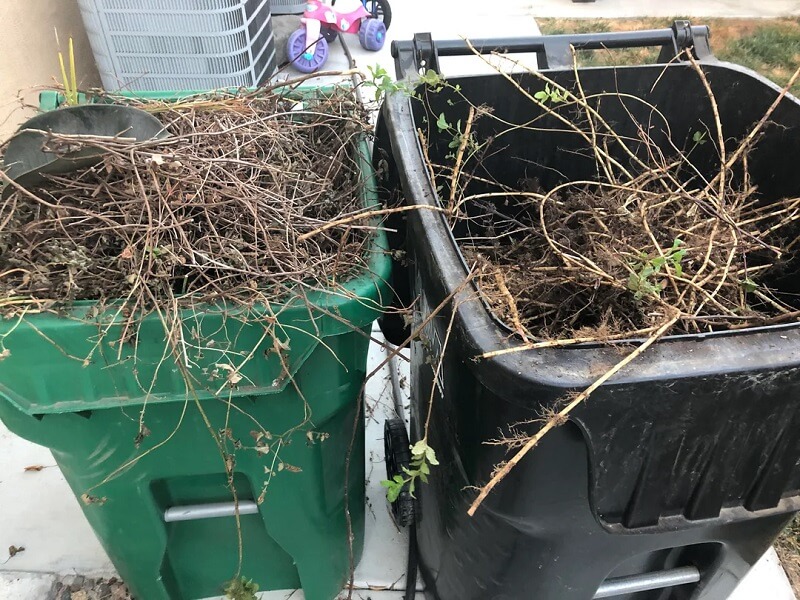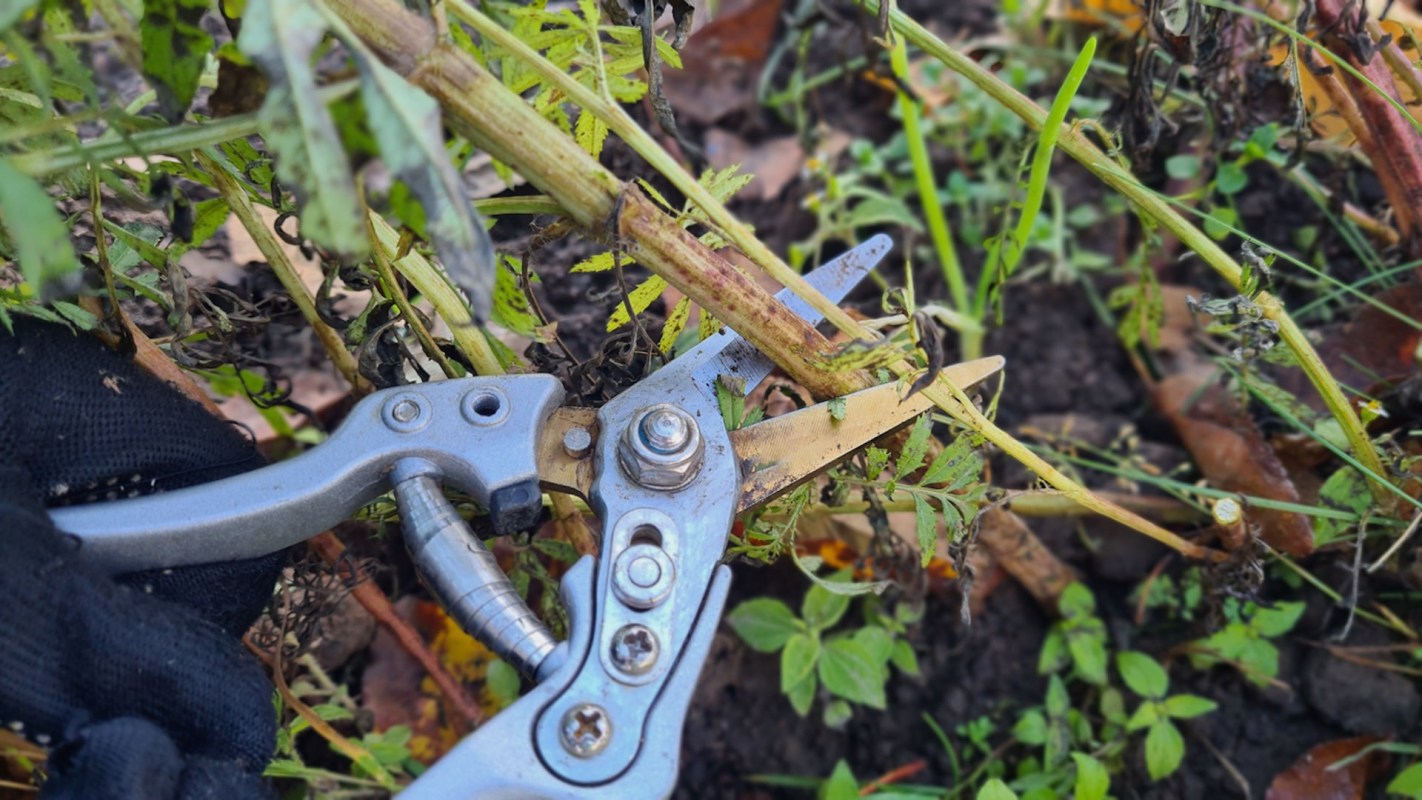We're all familiar with the annoyance of dealing with a menace in our yard or garden — maybe we've had moles, gophers, or noxious weeds. But sometimes, if we're not careful, we bring the menace upon ourselves.
This Redditor learned their lesson the hard way. They shared a photo to r/gardening of two garbage cans filled to the brim with roots.

"After ripping out what seemed like miles of roots," they captioned the post, "I can now say from experience that it was a mistake to plant mint."
Mint is invasive and has a reputation for spreading aggressively and taking over garden spaces. Many mint species are native to North America, while others have been introduced from Eurasia and elsewhere, particularly those species that are grown in agriculture and horticulture.
However, if we are thoughtful about the plants we select, both in terms of their growing habits and their indigeneity to our region, cultivating native plants can be a fulfilling and accessible way to make a sustained and positive impact on the environment.
Beyond bringing vibrance and variety to our yards, native plants create food and shelter for local wildlife and a healthier ecosystem for pollinators all year round. This ultimately benefits humans, as pollinators protect our food supply. Aside from native plant gardens, other eco-friendly, low-maintenance landscaping options include planting buffalo grass, which is native to North America, and xeriscaping.
But sometimes, we just have to let it be a trial-and-error process. On this particular post, Redditors took to the comments section to commiserate with the unlucky gardener about their experience.
"That's why they recommend planting mint only in pots," said one user. "Even so, you need to ruthlessly cut it down every so often. It will grow back stronger each time and stay in control."
"And now you will do this every year for the rest of the time you live there," commented another. "It's a never ending battle. Planting mint in the ground was by far my biggest gardening mistake!"
Join our free newsletter for easy tips to save more, waste less, and help yourself while helping the planet.









